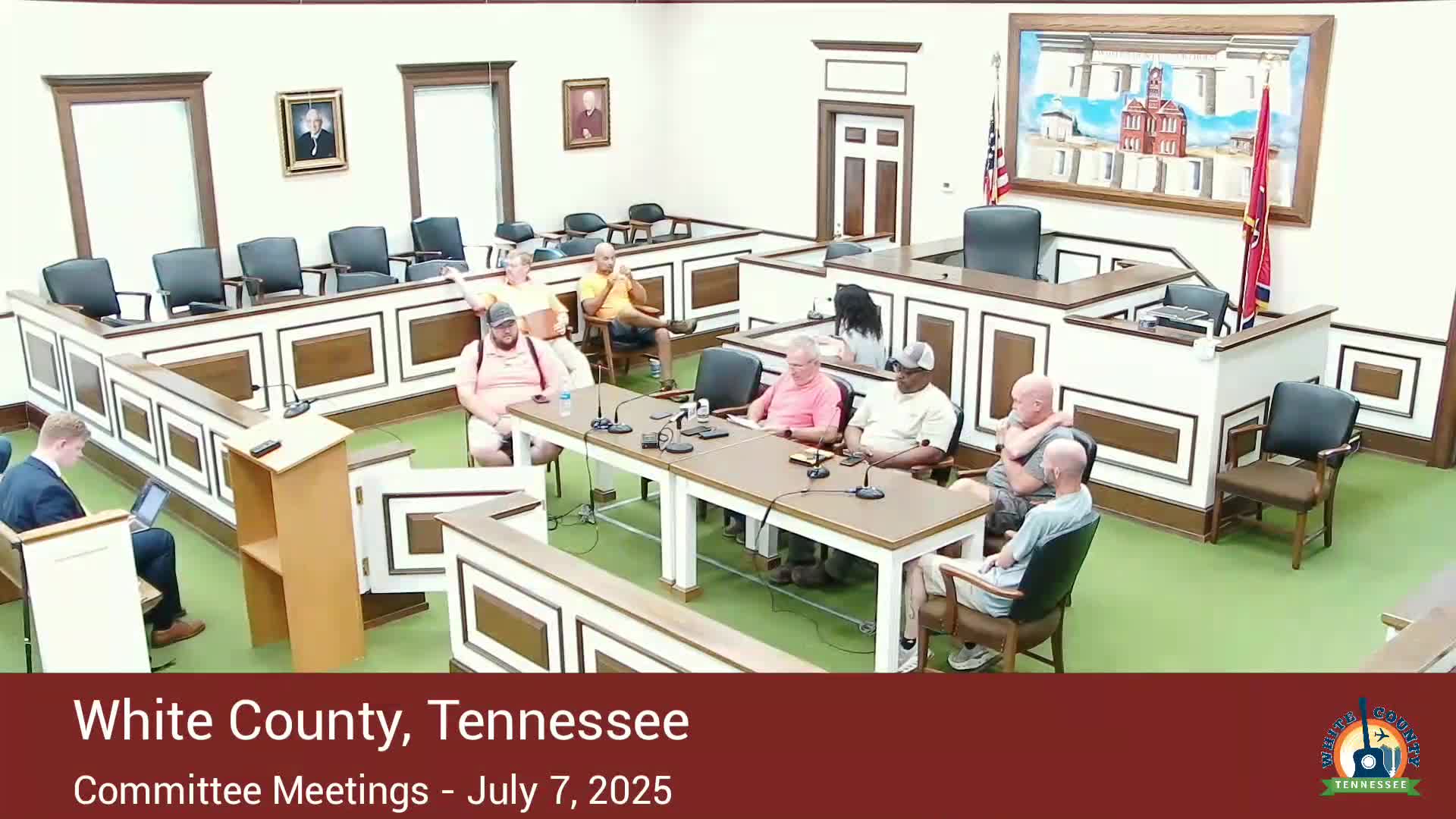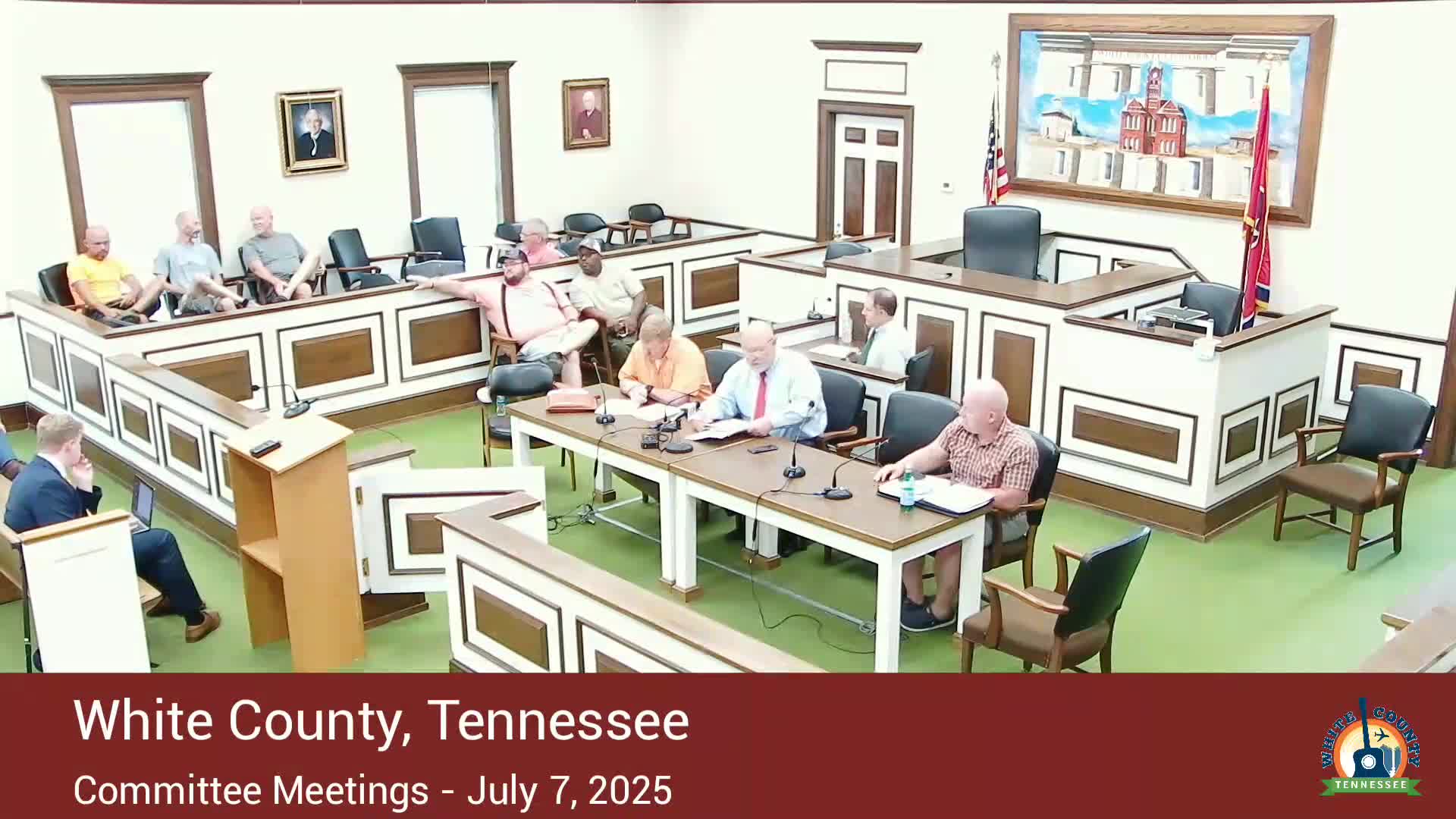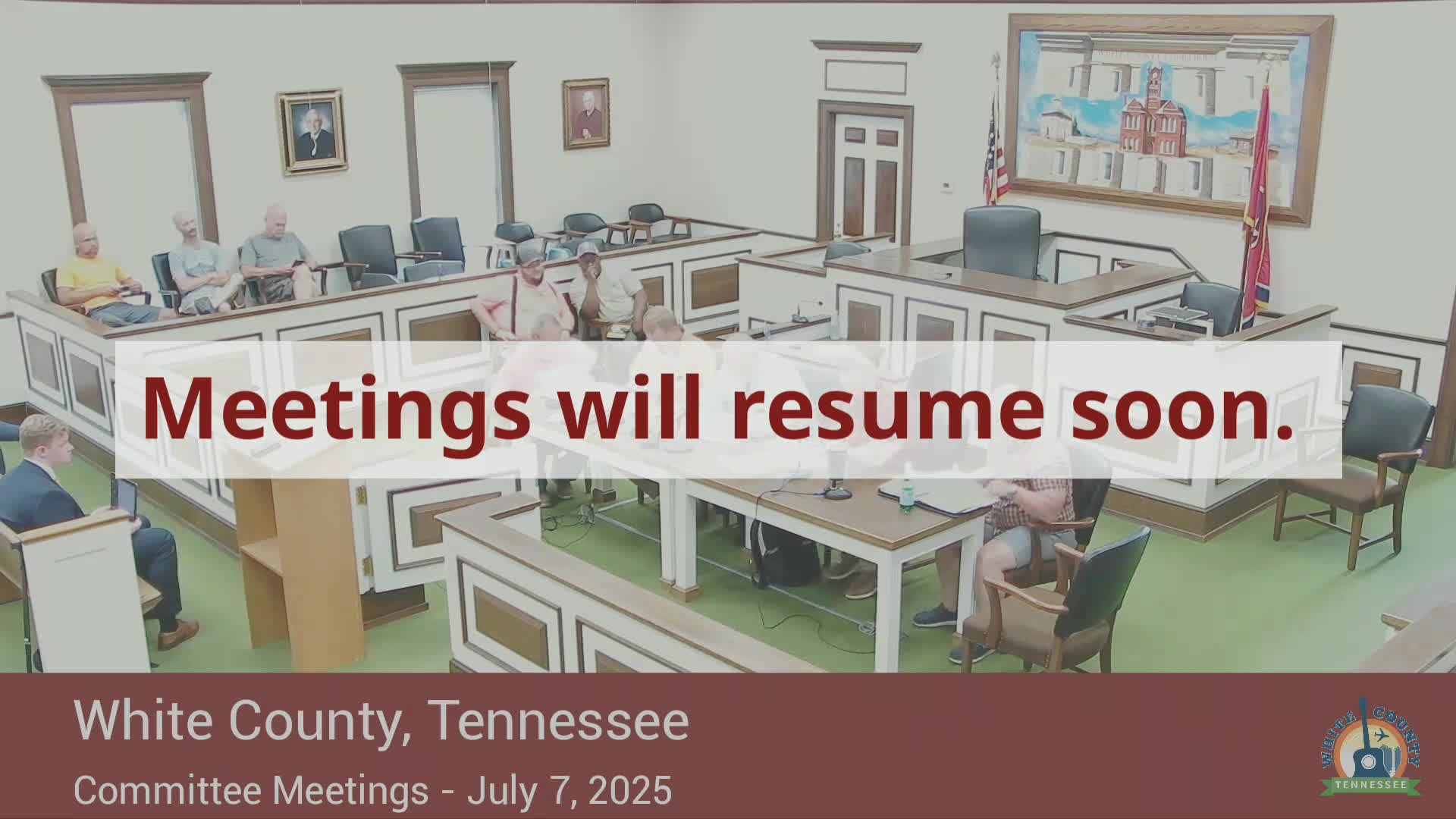Article not found
This article is no longer available. But don't worry—we've gathered other articles that discuss the same topic.

Solid Waste committee discusses convenience-center gaps near landfill; landfill permit public hearing expected

Purchasing committee approves water and road contracts, awards low bids for local utility and highway work

